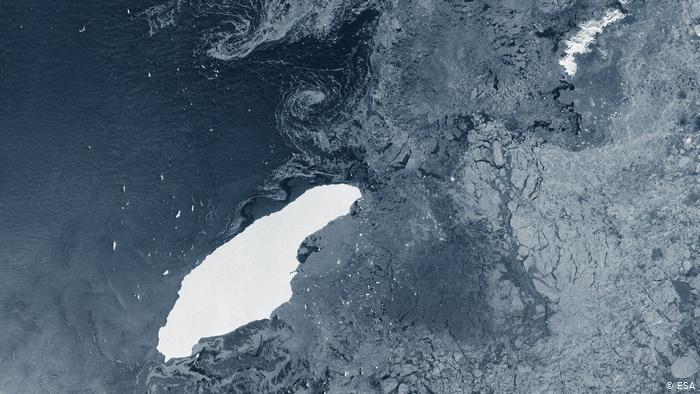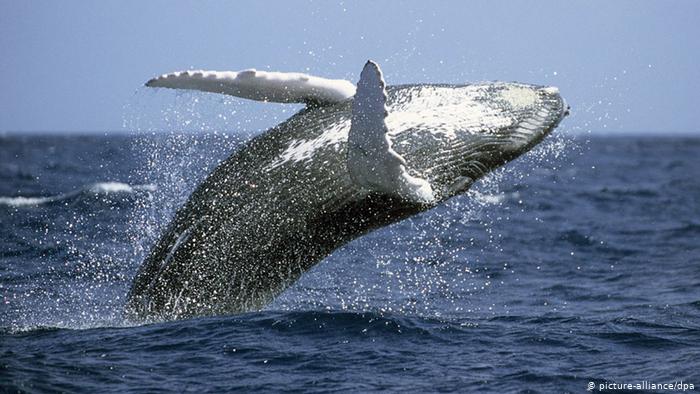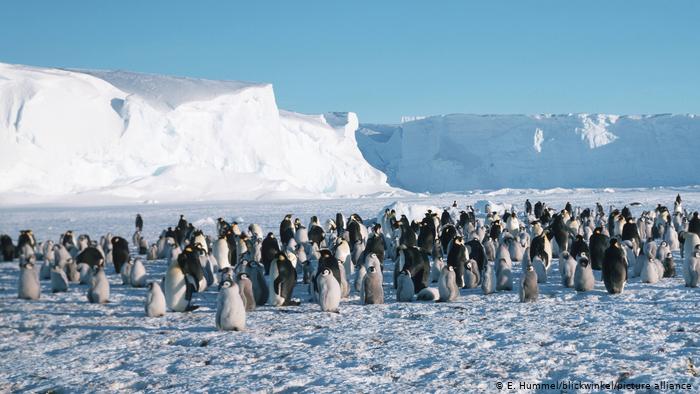The A68a iceberg is on a potential collision course with the British Overseas Territory of South Georgia. Scientists fear it could have a disastrous impact on the island’s diverse wildlife.
Written content from DW

An iceberg 158 km long (98 miles) and 48 km wide is on course to hit the British territory of South Georgia, a largely uninhabited island of roughly the same size in the South Atlantic.
Named A68a, the iceberg is believed to be the biggest currently in the Southern Ocean and one of the largest on record.
While it could still break apart or change course, scientists fear there is a strong possibility it will collide with the island, potentially disrupting biodiversity there.
“This is basically an area that’s completely thriving with wildlife,” Professor Geraint Tarling from the British Antarctic Survey (BAS) told DW. “The island has globally significant populations of penguins and seals … Enormous numbers that if they were not there anymore, there would be severe declines in quite a few species.”

The island is also a hotspot for recovering populations of humpback and blue whales and is home to one of the largest numbers of albatrosses in the world.
“Iceberg graveyard”
Scientists had expected A68a to shatter after breaking off from the Larsen C ice shelf on the east coast of the Antarctic Peninsula in summer 2017.
According to the European Space Agency (ESA), the icy giant has lost at least two chunks during long journey, prior to which it was roughly twice the size of Luxemburg.
Although A68a would be the biggest to hit the island, it would not be the first in the region named the “iceberg graveyard”. In 2004 a smaller iceberg grounded a few kilometers from land.
What is particularly concerning about this one is not only its size, but its shallow shape, explains Tarling. According to ESA it is only a few hundred meters thick.
“This one has the potential to go right on the shore and really block those [animal] colonies from getting to their food sources and coming back to get the food back to their pups and chicks.” Read more from DW.
For your interest:
Read other unusual stories from News Without Politics
Subscribe to News Without Politics





